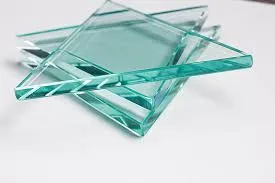The Fascinating World of Reflective Glass Material
Reflective glass material has emerged as a significant innovation in modern architecture and design, capturing both the aesthetic and functional aspirations of contemporary spaces. This remarkable material not only enhances the visual appeal of buildings but also plays a crucial role in energy efficiency and environmental sustainability.
The Fascinating World of Reflective Glass Material
The aesthetic benefits of reflective glass cannot be overlooked. Its ability to create shimmering facades and striking visual effects has made it a popular material among architects and designers. Reflective glass surfaces can mirror the surrounding environment, producing ever-changing interactions with sunlight and weather conditions. This can enhance the beauty of a structure during the day while providing a mesmerizing glow at night when illuminated from within. Many cities now boast iconic buildings adorned with reflective glass, which contributes to their unique skyline and modern urban identity.
reflective glass material
Moreover, reflective glass also enhances privacy without sacrificing natural light. Although it allows for visibility from the inside out, it makes it challenging for onlookers to see into the building during daylight hours. This feature is particularly advantageous for offices and residential spaces that wish to maintain a sense of seclusion while still enjoying the benefits of natural lighting.
While the advantages of reflective glass are numerous, it is essential to consider its potential drawbacks. One concern is its implications for bird safety, as reflective surfaces can cause confusion for flying birds, leading to collisions. Many architects and city planners are now exploring ways to mitigate this issue, such as incorporating bird-safe designs or patterns that can alert birds to the presence of glass surfaces.
Additionally, while reflective glass reduces heat gain, it can sometimes lead to issues of glare for people inside and outside the building. To combat this, manufacturers are continuously innovating to improve the performance of reflective glass, developing coatings that can minimize glare while maximizing visibility.
In conclusion, reflective glass material represents a compelling blend of beauty and functionality, making it a valuable asset in modern architectural practices. Its energy-efficient properties, aesthetic versatility, and ability to provide privacy while allowing natural light to filter in make it a preferred choice for contemporary buildings. As technology advances and awareness of environmental issues grows, the use of reflective glass is likely to become even more prevalent, paving the way for smarter, more sustainable designs that harmonize with their surroundings while setting new standards for architectural excellence. Through reflection—both literal and metaphorical—this material encapsulates the ambition of a forward-thinking, eco-conscious design ethos.
 Afrikaans
Afrikaans  Albanian
Albanian  Amharic
Amharic  Arabic
Arabic  Armenian
Armenian  Azerbaijani
Azerbaijani  Basque
Basque  Belarusian
Belarusian  Bengali
Bengali  Bosnian
Bosnian  Bulgarian
Bulgarian  Catalan
Catalan  Cebuano
Cebuano  Corsican
Corsican  Croatian
Croatian  Czech
Czech  Danish
Danish  Dutch
Dutch  English
English  Esperanto
Esperanto  Estonian
Estonian  Finnish
Finnish  French
French  Frisian
Frisian  Galician
Galician  Georgian
Georgian  German
German  Greek
Greek  Gujarati
Gujarati  Haitian Creole
Haitian Creole  hausa
hausa  hawaiian
hawaiian  Hebrew
Hebrew  Hindi
Hindi  Miao
Miao  Hungarian
Hungarian  Icelandic
Icelandic  igbo
igbo  Indonesian
Indonesian  irish
irish  Italian
Italian  Japanese
Japanese  Javanese
Javanese  Kannada
Kannada  kazakh
kazakh  Khmer
Khmer  Rwandese
Rwandese  Korean
Korean  Kurdish
Kurdish  Kyrgyz
Kyrgyz  Lao
Lao  Latin
Latin  Latvian
Latvian  Lithuanian
Lithuanian  Luxembourgish
Luxembourgish  Macedonian
Macedonian  Malgashi
Malgashi  Malay
Malay  Malayalam
Malayalam  Maltese
Maltese  Maori
Maori  Marathi
Marathi  Mongolian
Mongolian  Myanmar
Myanmar  Nepali
Nepali  Norwegian
Norwegian  Norwegian
Norwegian  Occitan
Occitan  Pashto
Pashto  Persian
Persian  Polish
Polish  Portuguese
Portuguese  Punjabi
Punjabi  Romanian
Romanian  Russian
Russian  Samoan
Samoan  Scottish Gaelic
Scottish Gaelic  Serbian
Serbian  Sesotho
Sesotho  Shona
Shona  Sindhi
Sindhi  Sinhala
Sinhala  Slovak
Slovak  Slovenian
Slovenian  Somali
Somali  Spanish
Spanish  Sundanese
Sundanese  Swahili
Swahili  Swedish
Swedish  Tagalog
Tagalog  Tajik
Tajik  Tamil
Tamil  Tatar
Tatar  Telugu
Telugu  Thai
Thai  Turkish
Turkish  Turkmen
Turkmen  Ukrainian
Ukrainian  Urdu
Urdu  Uighur
Uighur  Uzbek
Uzbek  Vietnamese
Vietnamese  Welsh
Welsh  Bantu
Bantu  Yiddish
Yiddish  Yoruba
Yoruba  Zulu
Zulu 

